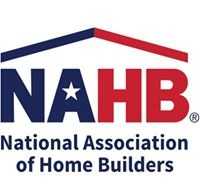WASHINGTON – (RealEstateRama) — The National Association of Home Builders (NAHB) today called on Congress to work with federal regulators to fix the regulatory rulemaking process by ensuring that effects on small businesses are a primary focus for existing and future regulations.
Testifying before the Senate Small Business and Entrepreneurship Committee, NAHB First Vice Chairman Randy Noel, a home builder from LaPlace, La., told lawmakers that builders must navigate an ever-increasing tangle of regulations.
“On average, regulations imposed by government at all levels account for nearly 25 percent of the final price of a new single-family home,” said Noel.
This is not just a problem for the small businesses that build them. According to NAHB research, approximately 14 million American households are priced out of the market for a new home by government regulations.
“It is therefore imperative that new and existing regulation must address policy objectives while acknowledging the burdens of compliance, particularly for small businesses,” said Noel.
While considering the impact of regulations on small businesses is critical to informing balanced rulemaking that achieves statutory objectives while minimizing the burdens of regulation, well-crafted regulations must also consider the challenges of implementing new rules in the field.
“This can only happen with direct input from affected small businesses,” said Noel.
Compliance with the Regulatory Flexibility Act, which requires federal agencies to review regulations for their impact on small businesses and consider less burdensome alternatives, continues to fall far short of the act’s objective, Noel told lawmakers.
As an example, he cited a proposed rule issued by the Occupational Safety and Health Administration (OSHA) to regulate worker exposure to crystalline silica that OSHA said carried a cost estimate to the construction industry of approximately $511 million per year.
An independent study found that the true cost would be nearly $5 billion per year. The study found that the OSHA cost analysis had omitted some 1.5 million workers in the construction industry who routinely perform dusty tasks on silica-containing materials and it failed to account for a variety of indirect costs associated with set-up, clean-up, materials, and productivity penalties.
“Complying with the resulting rule is both technologically and economically infeasible for businesses and more importantly, the rule will do little to improve the health and safety of my workers,” said Noel.
“Congress must provide some direction to address the problem of poor or non-existent economic impact analyses,” he added. “NAHB believes it is critical to include indirect costs as part of any economic impact analysis. Additionally, economic analysis should be reviewed by a non-partisan, third party. Implementing these changes will undoubtedly improve the analysis and provide a more accurate accounting of the burdens small businesses face in complying with regulations.”
The Regulatory Flexibility Act includes a requirement that proposed rules be reviewed by an industry panel. However, agencies sometimes ignore this rule. In 2014, the Environmental Protection Agency proposed a rule changing the definition of “waters of the United States” under the Clean Water Act. The agency certified the rule, and in doing, avoided the initial economic analysis and small business review panel requirements which is so critical to the rulemaking process.
“When agencies evade their responsibility to convene review panels, they remove small business input entirely from the process and deny these businesses an opportunity to provide input on the rulemaking as Congress intended,” said Noel. “NAHB believes the Regulatory Flexibility Act should be amended to include judicial review of the panel requirements to ensure that the agencies adhere to the law.”
CONTACTS
Elizabeth Thompson
202-266-8495







